
Known for his immersive environment paintings and breathtaking vistas, Noah Bradley has achieved renown in the global art community in a fairly short space of time. Not only is his art brilliantly and professionally rendered, but his approach to sharing his knowledge, teaching others, and being an all-round good person, has won him many fans the world over. We took some time out to chat with Noah about his art, techniques, and his plans for the future.
Hi Noah, it’s great to speak to you. Let’s start at the beginning – you’ve gained a great level of skill at a fairly young age, what drove you to learning and gaining skill so rapidly? At what age did you decide “This is what I want to do.”? Which artists inspired you, and which continue to inspire you today?
I decided when I was 18. I had this crazy, stupid idea that I would take a week and figure out what I wanted to do with the rest of my life. At the end of the week, after writing a lot of lists, thinking what would make me happiest, and researching everything, I came up with artist. Graphic designer, computer programmer, and carpenter were all in the top running. Art, though I was worse at it than these other options, would be the most eternally challenging option.
So at that point I knew I wanted to do this for a living. And that’s when I got serious. Art was a hobby for me. Now it was my future. I poured my time and energy into learning. I was desperate and knew I had to be really, really good by the time I graduated school.
We know you have some strong views on formal art education versus self-learning. In a nutshell, what would you say your key standpoint is? You yourself studied formally – in what ways did your education benefit, and act as a detriment to you?
Formal art education is great. But art schools are a disgrace. They’re money-making machines. Not artist-making machines. It’s horrendous to see how they treat and abuse art students.
I’m actually totally supportive of artists getting a good education from a physical school. It’s just that increasingly there are few reasonable options to make that happen outside of an atelier program.
I bet the bubble will burst soon. And I can’t wait for that.
I’m glad I went to art school. I learned a lot and somehow used my time in order to become professional. But I’d do it all differently if I had the chance.
You’ve contributed so much to the global art community, especially in terms of video instruction. What does community and teaching mean to you? How can artists benefit from community and interaction with one another in your view?
The internet has done wonders for the artistic community. Art is a solitary pursuit. It takes a lot of hours of isolation to create art. Living under a rock like this hurts everyone. But being able to share and connect so easily over the internet makes even the worst hermits of us a little healthier. There’s never been an easier time to share your work, learn to create, or talk to fellow artists.
I get excited just thinking about it.
The conceptual art and illustration world is becoming increasingly competitive. What are some key pieces of advice you can give to artists that are truly striving to make it in the industry, whether freelance or full-time employment?
Be really, really, really insanely awesome. It’s not a particularly easy field, but if you get good there’s plenty of work out there. Don’t settle for second best–strive to be great. The day you graduate from art school is the day you have to compete with every other artist in the world.
Motivation can be a big problem for artists. What helps you stay motivated, and moving forward with your art and projects? What advice do you have for artist to stay motivated?
Fear. I’m terrified of failing. I’m terrified that one day I’m going to wake up and the money and income will be gone and I’ll have to do something else with my time. I’ve talked to a lot of other artists and I think most of us feel this to some degree.
In art school I used that fear to force myself to keep pushing my skills. How could I slack off when I knew that I needed to be professional in X years/months?
How is your personal project coming along? Are there any insights, or teasers you can share with us?
It’s awesome. Can’t tell you how glad I am to be able to work on it full time. As for teasers? Let’s call it primal fantasy. Because I’m tired of medieval fantasy.
Those who study and strive to be great artists eventually realise that, for representational art, there are rules. What are the core foundational principles you would recommend people study, especially those just getting into art?
I’m going to let Andrew Loomis answer this one for me: “Expert use of the fundamentals is the only basis there is for learning to draw. These fundamentals can be listed, studied, and carried out in your own way. They are: proportion, anatomy, perspective, values, color, and knowledge of mediums and materials. Each of these can be the subject of infinite study and observation.”
Let’s talk about milestones. In a sense, you only became really serious about art late in your teens years when studying, and less than 8 years later you’ve reached a high level of skill and professionalism. What were some of your “Aha!” moments, key discoveries, and art milestones on your journey to this point?
When I learned that I was a better painter than I was a draughtsman. When I went outside and did a plein air painting. When I went to my first art convention.
As artists, pride can sometimes be a barrier to learning. In your videos and on your blog you come across as straightforward, humble and truthful. What advice do you have for artists who find that they are easily hurt by critique? What role does humility and “truth” in terms of fundamentals, play in creating art, and becoming a great artist?
Haha, more than a few people have the opposite opinion of me. But thanks. I actually struggle with critique. I think we all do. When we create something, it’s our baby. We don’t want people insulting our baby. But we need to let that happen if we’re ever going to get better. It’s this weird paradox of caring immensely about your work while also being cold and removed. I have a hard time with it. But I force myself to suck it up. I know it’s the best, fastest way that I’ll get better.
With so many years ahead of you, what are some of your other goals, in or out of the art world? What can we expect to see from you in the near and distant future?
Making the leap from freelancing has been a major move for me. And one that I suspect will keep me busy for at least a year or two. After that, I have some plans for tackling fine art. In typical form, I have no intention of going about that in the accepted manner. I’ve got a few ideas on how to do it differently.
Thanks for taking the time to speak with us, it’s been great talking with you!
Likewise! Thanks so much!
Connect with Noah Online:
Website: http://www.noahbradley.com
deviantArt: http://noahbradley.deviantart.com
Tags: Conceptual Art, Digital Art, Digital Creative Art, Digital Painter Noah Bradley, Digital Painting, Digital Painting Environment Design, Dungeons and Dragons, Environment Design, Environment Design for Film, ENvironment Painting, Environment Sketching, Film Painting, Magic the Gathering, Matte Painting, Noah, Noah Bradley, Noah Bradley Art, Noah Bradley Concept Artist, Noah Bradley Environemnt Painting, Noah Illustrator Bradley, Noahbradley.com, Noahs Art Camp

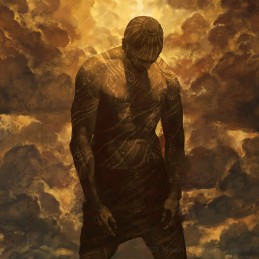
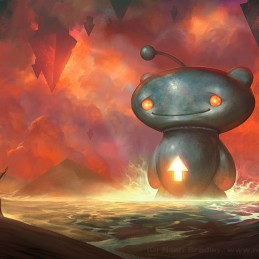
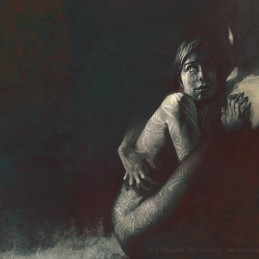
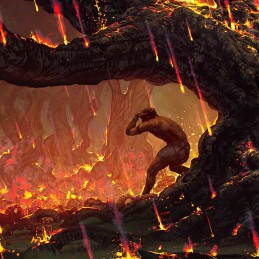
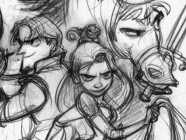
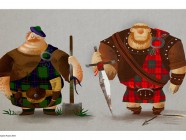
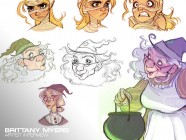
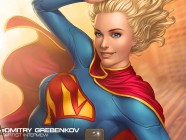
What an interesting read, somewhat blunt, but still interesting. I am inspired at the rapidity of your learning, and I wish you the best in your future endeavors, particularly with regards to the Sin of Man.
Great interview Noah. Clear cut. Thanks!